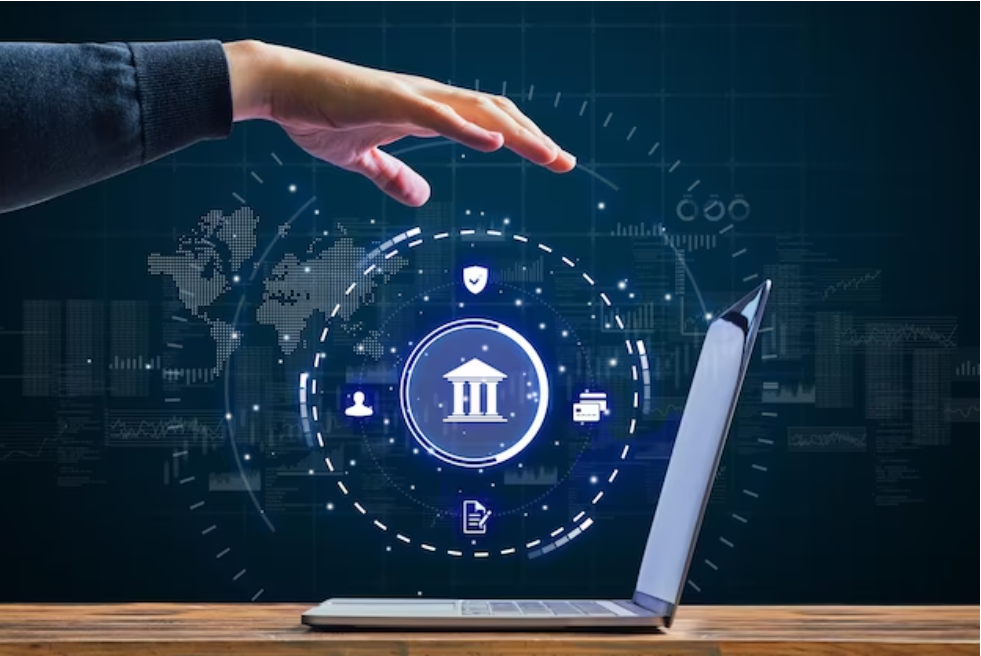The banking industry is going through a digital revolution thanks to artificial intelligence (AI). It could lead to safer, more individualized, and more efficient banking operations. This blog will explore the effects of artificial intelligence solutions on the banking industry, including the positives, cons, opportunities, and threats of these technologies.
Machines that mimic human intellect to carry out activities often associated with human intelligence—including learning, thinking, and problem-solving—are known as artificial intelligence (AI). Only 35% of businesses are now employing AI, while 42% are at least considering it for future use.
Artificial intelligence relies on specialized hardware and software to develop and train machine-learning algorithms. Python, R, Java, C++, and Julia are all popular capabilities among AI developers. Still, no programming language is inherently synonymous with AI.
Why is AI important?
AI could transform our lives, work, and leisure. It has successfully automated customer service, lead creation, fraud detection, and quality control in business. AI outperforms humans in many aspects. AI systems are fast and accurate at repetitive, detail-oriented activities like reviewing large quantities of legal papers to verify that relevant fields are filled. AI can also give companies new insights into their operations by processing enormous data collections. Skilled professionals seeking industry knowledge and networking with specialists may benefit from an artificial intelligence bootcamp.
Artificial intelligence in banking: possibilities and challenges
Financial professionals have been buzzing about AI for years. AI helps banks improve operations, client experiences, and fraud detection. AI creates issues for the banking business, as with any new technology.
Opportunities of AI in banking
- AI enables tailored customer experiences for banks. Using data analytics, banks can offer personalized financial solutions by understanding consumers’ preferences, economic behavior, and life events. Customer satisfaction and loyalty may increase.
- AI enhances fraud detection by analyzing large amounts of data more effectively than humans. To stop fraud in its tracks, machine learning algorithms can analyze past cases for trends and outliers.
- AI can detect fraudulent transactions faster than humans by analyzing massive data sets. Past fraud incidents can teach machine learning algorithms to spot trends and anomalies to prevent future fraud.
- AI can automate mundane jobs and streamline operations, leading to cost savings and enhanced efficiency. Chatbots can answer client questions, freeing up staff for more sophisticated work.
- AI can help banks manage risk by forecasting credit defaults, assessing creditworthiness, and monitoring market movements. Banks must take strong cybersecurity precautions to prevent cyberattacks.
Challenges of AI banking
- AI utilization raises ethical considerations, including biased decision-making and job loss. Transparency, fairness, and impartiality should characterize a bank’s AI systems.
- Concerns about bias in decision-making and the loss of jobs are only two examples of the ethical issues brought up by AI. Transparency, fairness, and impartiality should characterize a bank’s AI systems.
- Banks must adhere to several rules and regulations. Unfathomable AI algorithms are only one example of how AI could cause regulatory headaches.
- Banks must implement robust cybersecurity safeguards to avoid cyberattacks on AI systems.
Ten businesses benefit from AI technology:
- Artificial intelligence will streamline mundane Artificial intelligence is revolutionizing various sectors by facilitating the automation of mundane but essential jobs. People can now devote their time and energy to tasks requiring more strategic thinking and originality.
- Businesses are also finding that AI helps them make better decisions. AI will enhance decision-making. AI can analyze massive datasets and spot trends and patterns people need help spotting.
- AI assists companies in streamlining client Artificial intelligence (AI) can tailor suggestions and assistance to consumers by learning their shopping habits.
- AI will inspire brand-new offerings: AI is assisting companies in expanding their product lines. Artificial intelligence (AI) can solve customer demands in novel ways by automating processes and analyzing data.
- AI will boost productivity and AI is also assisting companies in making their operations more efficient and productive. Automating processes and analyzing data allows AI to find and remove inefficiencies.
- Artificial intelligence will cut AI is assisting businesses in cutting costs by automating jobs, boosting decision-making, and optimizing consumer interactions.
- AI powers new business models: AI is also helping companies create brand-new business models. Take the example of AI-driven platforms like Uber and Airbnb, which have entirely upended the transportation and hospitality sectors.
- Furthermore, new subscription-based services and methods to commercialize data are being developed with the help of AI. Numerous sectors are already utilizing AI to enhance safety and security measures. A good example is using AI-powered facial recognition technology to improve airport security. Next-gen cyber defense systems are also being built with AI.
- While AI automates specific jobs, it also generates new career opportunities. For example, AI creates employment opportunities in the AI system development, deployment, and maintenance domains. Analyzing and interpreting data produced by AI is another area where AI generates career opportunities.
Other Applications of AI
- AI is developing novel diagnostics, treatments, and personalized services. AI-powered algorithms can now detect cancer cells in medical imaging better than doctors.
- AI is improving product features and manufacturing processes to make them more efficient and sustainable.
- AI is being utilized to generate individualized shopping experiences and products and services for diverse client categories.
- AI creates fraud detection systems, anticipates stock market movements, and gives tailored financial advice. AI-powered systems can now detect fraudulent transactions better than analysts.
- AI is being utilized to create self-driving cars and trucks and optimize transportation networks. AI-powered systems can predict traffic congestion and redirect vehicles to minimize delays.
The bottom line
Artificial intelligence is transforming banking, improving everything from fraud detection and customer service to decision-making. Banks use AI to automate operations, improve customer assistance, and reduce risks, enhancing efficiency and productivity.
With so many uses and benefits in banking, AI’s future seems bright with system integration. Professionals must acquire new skills to keep up with the rapid pace of technological change in today’s workplace. This job requires experience and tech knowledge. Simplilearn online education brings classroom learning experiences online with its world-class Learning Management System.

